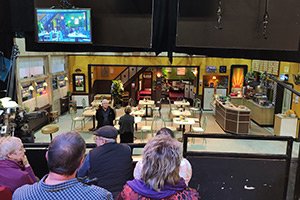Turning Point / Midpoint / Crunch Point: How to Structure Your 30 Minute TV Sitcom/ Comedy Drama Script

As a writing coach and mentor, I read a lot of thirty-minute TV comedy scripts. One thing that is often lacking is structure. Indeed at the moment I am working with a very good writer on a script that a TV production company is interested in. And the writer has acknowledged that structure is something they know they need to look at but have been avoiding getting to grips with.
Now, you can of course have a script that is perfectly structured but still falls short in terms of characterisation, story, situation... funniness. However you can also have a script that has huge potential in all these areas but is let down by poor structure.
Luckily it's quite simple to get your head round the structure of a thirty minute script, and once you get into it you find it really helps with the storytelling. In this blog I go through how to structure your thirty minutes TV comedy script, in dialogue with a fictional writer, as we explore the turning point / midpoint / crunch point of your script.
If you want to into this in more detail with me, while also exploring multiple storylines (your A story, B story, C story) please sign up for my Zoom course. Or get in touch with me about a one-to-one session. Details below.
So what is this structure and why do you say it's important to get it right?
There is a distinctive structure to a thirty minutes TV comedy script and the point of it is it puts your story into the right shape to have the most impact on the reader of your script. Not all of these readers will be consciously registering this structure - let alone a viewer of the show - but they will instinctively recognise that it is there (and will instinctively feel when it's not).
It's the shape of a well told story. In Act 1 of your script you want to hit a 'turning point' for your protagonist (often at the end of Act 1 but it can fall earlier). In the middle of the script is the 'midpoint' and at the end of your Act 2 you reach a 'crunch point'. Then you're into Act 3 and into the home straight.
Well that was as clear as mud.
Okay, let's unpack it. So the script you're writing is in a three act structure, right?
Yes, but isn't that just a fancy way of saying "beginning, middle and end?"
In a way. While stories might be told in five acts or seven, three acts is a natural shape and is commonly found in 30 minute TV comedy. (Ignore anyone who tells you these shows are two acts - probably this is based on the idea of shows with a single commercial break).
You might have a cold open at the top: a scene or scenes that go before the opening titles. This cold open, or teaser, could usefully be be plot related, but it can also be an unrelated skit with your main character(s). Act 1 introduces the dilemma or problem for your protagonist, Act 2 develops and complicates the situation, and Act 3 brings things to a conclusion. And you may end on a 'tag' - an extra comic moment after the main story is wrapped up. Now, it's not mandatory to have acts actually marked on scripts with headings saying "Act 1"/ "Act 2"/ "Act 3". In the scripts we are about to look at, acts aren't marked in the scripts of Alma's Not Normal or Hacks, but we do see it in Brooklyn Nine-Nine. But even when they aren't explicitly marked, you will benefit from writing to this underlying rhythm.
Okay, but what's this about a turning up, mid bit and crunchy point?
Ahem, that's the 'turning point / midpoint / crunch point'.
Wait, have you just made these terms up?
'Turning point' is quite a common phrase, also you hear people talk of an 'inciting incident' which does the same job. 'Midpoint' is a much used term, but yes 'crunch point' is my own term - other people will have different ways of putting it - but it's describing a key point in the story. It's also known, for example, as the 'worst point'.

Okay, so how does it all work?
So after your COLD OPEN (if you have one) / ACT 1 will be setting everything up for that episode. At a key moment - often at the end of Act 1, but it could be sooner within that first act - you reach a TURNING POINT for your protagonist. So something changes for your main character, it's the moment that sets the story in motion. Act 2 picks up the story, then around half-way through the script, you hit the MIDPOINT.
Bit shouty there WITH THE CAPS. So the midpoint is in the middle - who'd have guessed?
It's not just the middle of the script, it has a specific job to do. It can be the moment of no return, or at least when things suddenly get more challenging and options close down for your protagonist. It can also be a revelation where the audience find out something significant.
Sounds a bit dramatic.
Well the midpoint is often seen in dramas. And even in comedy, and especially comedy drama, it can indeed be dramatic; a serious or dangerous situation, or a heavy emotional moment. But equally in comedy the midpoint could be a moment of acute embarrassment, stupidity, pettiness or crudity that makes things markedly worse or more complicated for your protagonist.
Then the crunch point?
At the END ACT 2 you hit a CRUNCH POINT for your protagonist. Then you're into the shorter act 3 that rounds things off.
Enough WITH THE CAPS. So you're saying my script needs to do exactly that? All sounds a bit formulaic to me.
I often say writing a 30 minute TV comedy script is akin to writing a pop song. There is an underlying shape to a song that we recognise whether we have analysed it or not; the verse/chorus structure, a middle eight or 'bridge' after the second chorus, a key change towards the end...
And no matter how many of these pop (or rock or rap) tracks get produced, the genius of it lies in being able to be fresh and creative within an established structure. And so it is with your thirty-minute script. Knowing and applying its structure does not curtail your creativity. On the contrary it gives your creativity a framework to play within.
When I teach this structure I draw on shows as varied as Ghosts, Brooklyn Nine-Nine, Black Books, Friends, Alma's Not Normal, Big Bang Theory, Mo, Chewing Gum, Fawlty Towers, Hacks...
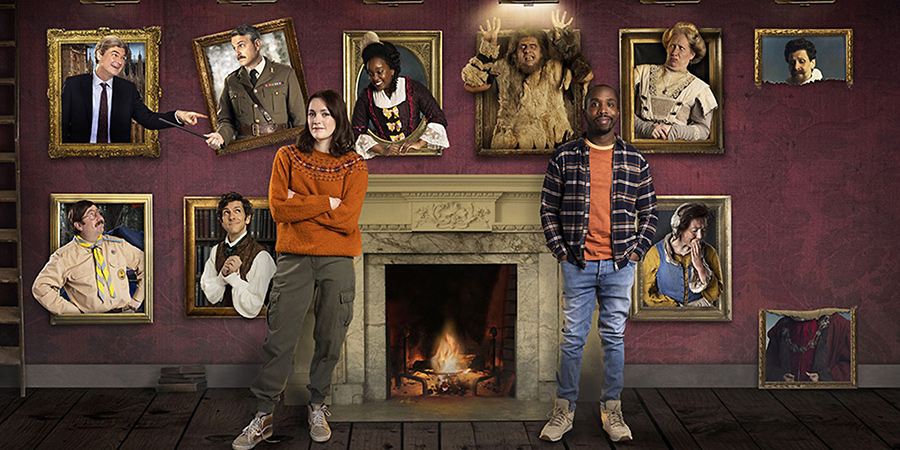
Okay, so how does it work in those shows?
I'll pick three Amazon's Hacks and the pilot of the BBC's Alma's Not Normal as it introduced us to a brilliant character and world, but also because it had the unusual distinction of winning a BAFTA as a pilot. And because these two are a bit more in the comedy drama space, I'm also picking one that's full of good old fashioned gags and silliness, Brooklyn Nine-Nine. You can read the scripts here:
Here are the Turning points, midpoints and crunch points (aka worst points) in these scripts - note I am not looking here at any minor stories which thread around the main story. It's the main story (the A story) that hits these beats:
Hacks
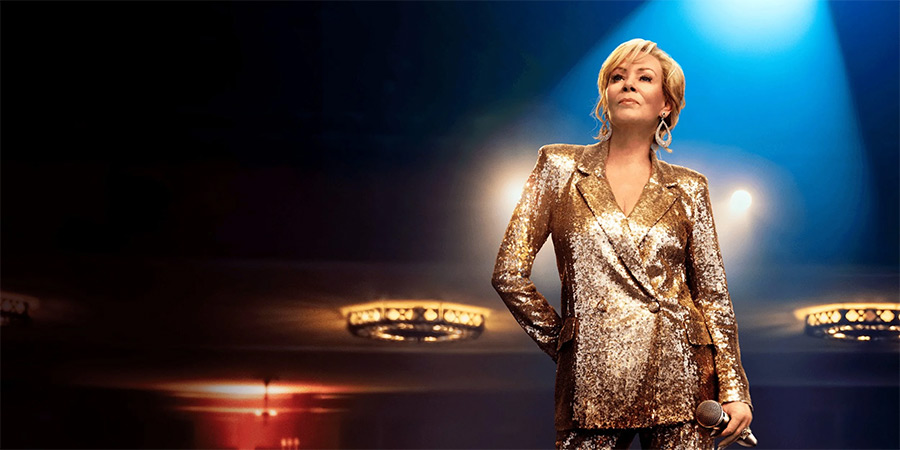
Turning point (p7-p.9)
Deborah Vance, the acerbic old school, Joan Rivers-like comic, meets with her agent to discover that she has been bumped from the prime Friday/ Saturday night shows at Vegas (to be replaced with a beatbox group from a talent show).
"You know you're a part of the Palmetto's history, but maybe it'd be good if you did a few less shows a year...."
Midpoint (p.16)
Ava - the young comic who is soon to be a reluctant writer for Deborah - fails to get a writing job on Season 2 of her contact's series. (In humiliating circumstances).
"I can't hire you. I'm sorry, but I have to protect the show."
Crunch point (p.30-p.31)
Ava is furious with Deborah and all of her disdain she has been attempting to hide comes pouring out and they roast each other. Ava says 'bye bye'.
Ava: "...you're right - I'm not a fan of yours! You caught me! This is all just a little annoying because I flew all the way here on Spirit fucking Airlines even though I didn't want this job in the first place! The last thing on Earth I want to do is move to the desert to write lame jokes for an old hack!"
Alma's Not Normal
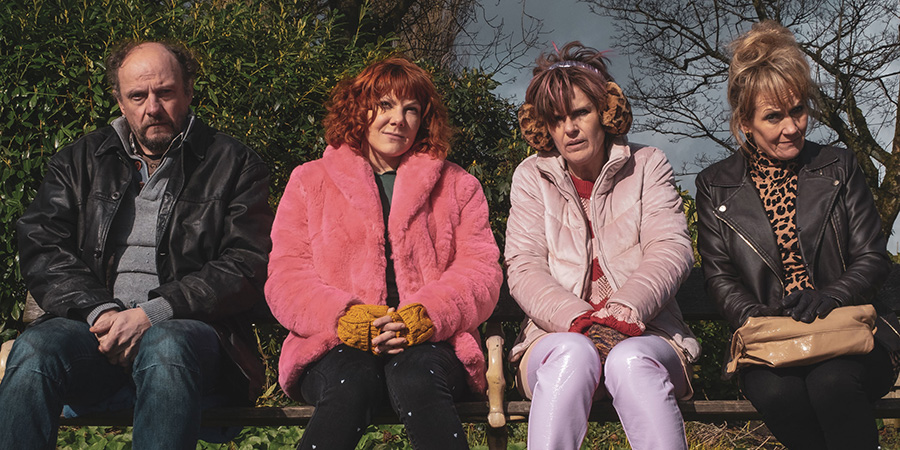
Act 1: Turning point (p.6)
Alma has to go to the job centre, but she has a clear career plan - she is going to be an actor. The turning point is when she puts aside her acting ambitions and accepts the sandwich shop job interview.
CAROL (Back to knackered) "To stay on JSA you need to be actively seeking work Miss Nuthall. Shall I put in an expression of interest?"! CAROL shoves the SubNGo document at ALMA. ALMA slumps down defeated and takes the document. ALMA "Yeah go on then."
Act 2: Midpoint (p.17-p.18)
Alma has held out hope for an acting job that she has auditioned for until, at the midpoint in Act 2, she is turned down for the acting job.
ALMA's phone rings. She mimes to LEANNE it's her audition. LEANNE looks excited for her. ALMA (Faux posh voice) "Hello! Yes - this is I! Thanks for calling back. (Beat) Oh right. Okay. (Hurt) Okay. Thank you fo-" They've hung up. ALMA puts her phone away. ALMA "Didn't get it."
Act 2: Crunch point (p.33)
Trying to cheer herself up with a night out with her best friend, she experiences embarrassment when trying to hit on a guy and her crunch point is realising her whole life is a failure.
LEANNE "Maybe just start with a job." ALMA "Yeah. (BEAT) Doing what?" LEANNE "Well, what skills do you have?" ALMA(Beat) "I can hold a 3 liter bottle of cider under my left tit with no hands." LEANNE "I don't think that's a transferable skill babe".
Brooklyn Nine-Nine
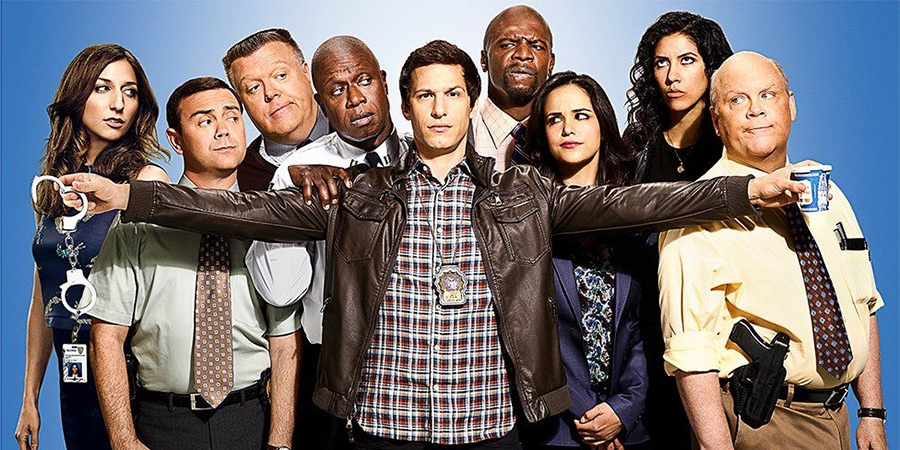
Note, with a characteristically long cold opening and a longer Act 1, the ratios of the acts are different (probably due to NBC commercial breaks) but we find the exact same rhythm.
Act 1: Turning point (p.8 - p.9)
We have seen what an easy life Jake had with the old captain, and at the turning point of Act 1 he meets the new captain, Captain Holt, and suddenly his easy life is over.
JAKE: "Our old captain didn't care if we wore ties." HOLT: "Well, your new captain does. And more importantly, he cares that you follow his direct orders."
Act 2: Midpoint (p.19)
This midpoint ups the ante as we discover what's really at stake with Jake and Amy's competition over who can get the most arrests.
GINA: "The bet is: if Amy gets more arrests, Jake has to give her his car. It's an old Mustang, pretty sweet. If he gets more arrests, she has to go on a date with him." HOLT: "Just one date?" GINA: "He guarantees it'll end in sex. She says it won't. I don't know, though, Jake's got some moves. I'd bet on at least some over-the-clothes action."
Act 2: Crunch point (p.23)
Not only is Holt unhappy with Jake's attitude, he has now let a criminal escape.
JAKE: "Good news is: we found the murderer. Ratko Slovic, a Serbian butcher. Robbery gone bad. He confessed and everything." HOLT: "I don't see a Serbian butcher in here, so I assume there's bad news." JAKE: "Charles and I may have allowed Ratko to escape."
Okay I get it. So do you end up seeing this pattern in everything you watch?
It does jump out at you once you know to look for it. For example, I just started watching Mo on Netlix. A great show and I couldn't help noticing the turning point / midpoint / crunch point. Act 1 establishes that Mo is an undocumented migrant working at a US phone repair shop. His turning point is losing his job at said shop (despite his great skill) due to his immigration status. At the midpoint Mo gets shot! And at the crunch point, Mo is uninsured and can't go to the hospital, he has had his gunshot wounds dealt with by a tattoo artist.

Okay, nice. So where do we go from the crunch point at the end of Act 2?
Then your script goes into Act 3 - the last few pages, which wrap things up for this episode and tee up the series to come.
Alma Act 3 wraps up the story of her failed love life/work life as she draws a line under it all and decided to become an escort so setting up the series (and leaves unresolved the story of family relationships).
Hacks Act 3 (which continues the action from the end of Act 2 in a new setting, at the gates to Deborah's home) sees the two mismatched protagonists suddenly hit it off as they riff on Ava's insult. Maybe they can work together after all...
Brooklyn Nine-Nine sees Jake demoted to the records room... but in there finds a document that solves the crime.
And Mo's Act 3 wraps up the entertaining C story of the cat food (buying the cat food took him to the supermarket where he got shot... but it turns out he didn't even need to get it), it also gives a surprise finish to the tattoo story and sets up his life of struggling and hustling to come.
So, looking at these scripts where we meet the characters for the first time, they are both telling a story that completes satisfyingly and setting up the issues that will take us through the series?
Correct! I couldn't have put it better myself. Act 3 is building to a surprise endpoint for a story or stories from this episode, and which these days will also typically set up the series/season story arc with open questions and issues.
So I guess the point of you telling me all this, is that you now want me to go away and make sure my turning point, midpoint and crunch point are clear in my script?
Yes, since you already have a draft of it, that's exactly what I'm saying. But, when you're doing a first draft, you could, if you like, make sure you're hitting these beats. Or you could just as well forget all this (or have it buried in the back of your mind) and just bash out your exploratory writing or your 'vomit draft' (such a horrible phrase - I like to call it the 'splurge draft'). You may well have instinctively got close to the optimum shape anyhow as story structure is so ingrained in us. Then when you do the edit and rewrite, you can start to think about this bringing in this structure.
But isn't it a lot of work?
Maybe, maybe not. Depends how far away from this kind of clear three act structure your first draft is. But it's definitely worth looking at. With the writer I mentioned at the top of our discussion, he had a strong start to his script with a minor character dying in a comical way (yes it is a bit of a dark show). But while this was a funny and arresting start, it didn't particularly impact their protagonist.
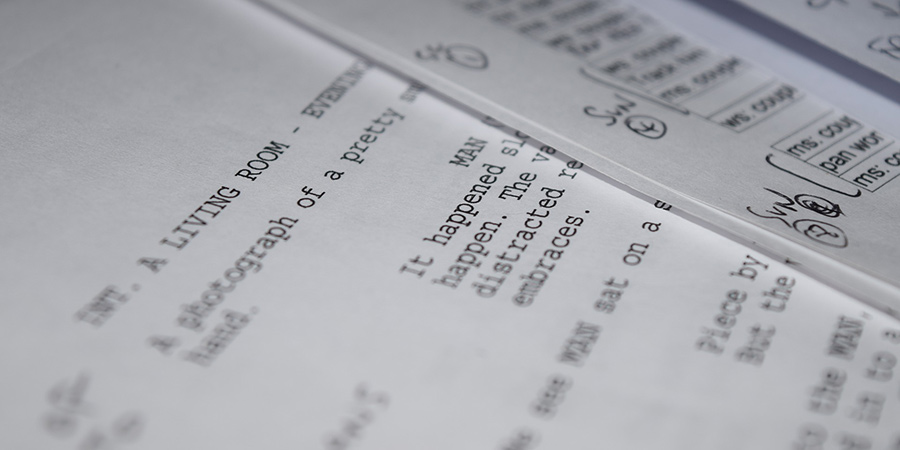
So you looked to find a clear end of Act 1 turning point for the protagonist?
Exactly. This got him to focus on how this death changed something for his protagonist and in finding this moment, he got his story started in a more compelling way that made his protagonist active rather than passive.
Then looking for the midpoint - that would up the ante half way through - we realised a scene that was currently there could be rewritten to make it much worse for the protagonist, and this created a much stronger scene and bigger complications for his protagonist (which is always going to be good for comedy).
And the crunch point?
As it stood, his script built to a big finish without any discernible end of Act 2 moment. In this case, we actually shifted what had been the end of the script to the climax of Act 2, and this created some space for a new ending in a fresh Act 3 that also teed up the rest of the series. You'll respond to this invitation to have these moments clearly defined in your script in your own way, but thinking in these terms really gets it into the right shape.
Lovely. I'll get on with it.
Great.
Actually, before I work on my script again, I think I'll put my feet up and watch Alma, Hacks and Brooklyn Nine-Nine. Oh, and Mo.
Chris Head's Write Your TV Comedy Script helps you find the turning point, midpoint and crunch point in your own script - and so much more: Info and booking here
He also runs other sitcom, sketch and stand-up courses, and offers a number of script reading services.
See also: How to structure your 30 minute TV comedy script video
This article is provided for free as part of BCG Pro.
Subscribe now for exclusive features, insight, learning materials, opportunities and other tools for the British comedy industry.



